In January, Donald Trump signed an executive order banning travel to the United States from seven Muslim-majority countries. The order sparked a series of mass protests and was blocked by federal judges. Six weeks later, on Monday 6 March , Donald Trump signed a new, modified version of the order. The ban prevented citizens of Syria, Iran, Libya, Somalia, Sudan and Yemen from obtaining visas to the US for at least 90 days, and blocked the admission of refugees into the US for 120 days. The new ban was to take effect on 16 March, but has been frozen by a federal judge.
Here, a selection of writers and translators respond to the bans.
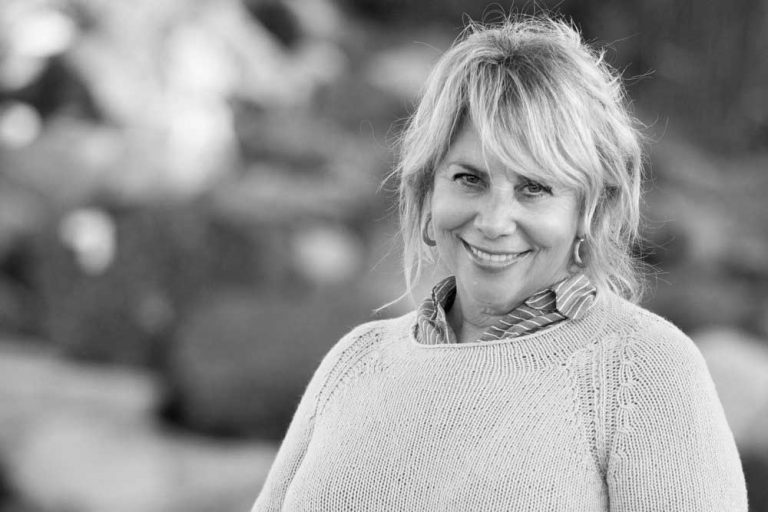
My grandparents fled religious persecution in Russia and came through Ellis Island. My grandmother was only three years old, alone, undocumented with only a paper tag around her neck. She was welcomed and made a beautiful life here. My father fought in World War II. He was one of the first American soldiers to liberate concentration camps, and after he walked over the Remagen Bridge and wasn’t blown up, he said that the rest of his life would be lived on borrowed time. He was eighteen and would have given up his life for freedom both at home and for others around the world.
America was a place of hope and dreams for my family, and for millions of other refugees and immigrants since it became the United States –since 1776. My country has always been, and continues to be, comprised of people from all over the world. Horrifyingly, that precious freedom is being challenged. We must join together to fight President Trump’s Muslim ban, and every single other effort he and his administration take to denigrate, degrade and destroy America.
As an international literary agent and author I decided to protest in a way I knew how; by writing, and by asking those I knew to write as well. The letters of protest collected here are deep and meaningful, and I am looking forward to receiving many more. I hope to publish these as a collection, to inspire readers around the world, and to help Americans remember what is at stake. When Muslims are targeted, we are all targeted.
I was very moved at an i am muslim too rally in NYC a few weeks ago. There were people of every color, every age and every religion. I overheard a conversation – an elderly woman was speaking so animatedly in a low, raspy voice, and although she had a thick accent her words lodged in my mind: ‘My family died in a camp in Germany. No one stopped them. We can never let that happen again. We can never watch. We must act. I lived for a reason. I am a Jew and today I am a Muslim, too.’ And then she rolled up her sleeve and revealed a tattoo on her arm as if it was a badge of courage.
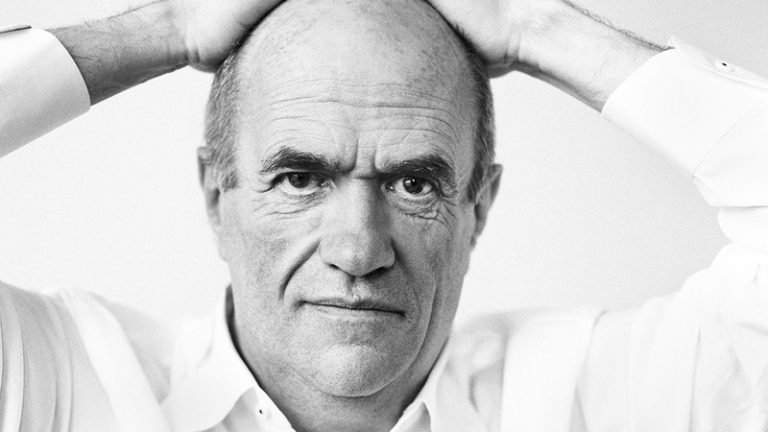
It is always easy to invent enemies; it merely takes a failure of imagination, a determination to look inwards, a lack of confidence in our own ability to see clearly, to understand, to love. It is easy also not to see that the entire history of the globe involved people moving and that all forms of human progress included ideas from outside and involved translation, migration, the recognition of difference. This is why the French build canals and why the railways were built and why one of mankind’s earliest invention was the road and the path. The history of walls built for political reasons should deter us from wishing to build other ones, and the history of religious hatred or the demonization of another religion should make us not wish to repeat such history, indeed should chill us to the bone when we see it re-emerging.
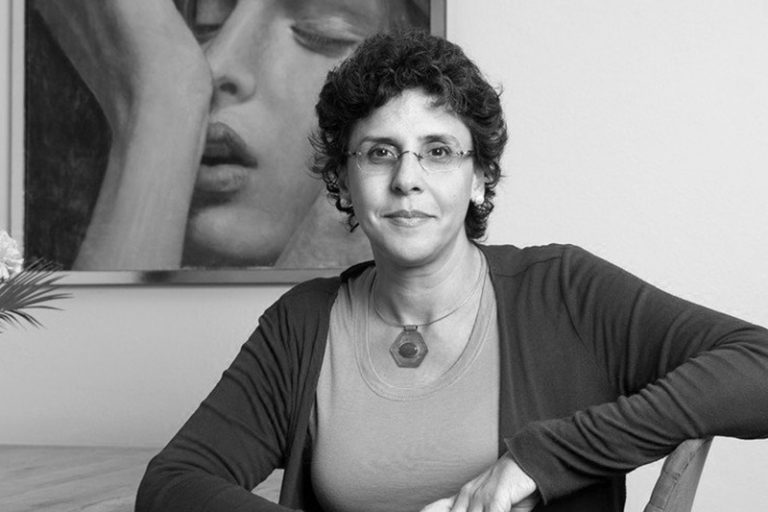
For six months of last year, I travelled nine times to countries in Middle East, Africa, Canada and Europe.
Whenever I come back home, to Switzerland, I find myself standing before the passport counters having to make a decision: a choice between the line for Swiss and EU nationals and another for all other nationalities. Nothing is discriminatory in this practice. Other countries have similar lines, fast-tracking their citizens and citizens of countries they have closer relationships to. Yet I often find myself hesitating, and when I can, I move to the line for the ‘other nationalities’.
It is not because I do not feel Swiss. I am proud to hold the Swiss nationality. It is a country to be proud of. I feel part of its fabric and every time I come back, I know I am back home. I hesitate because I know if I was traveling with my other passport, the Yemeni, I would face delays, if not outright obstruction.
Nothing personal.
It is just my passport.
It is just my nationality.
Both cast a shadow of mistrust over me. If I were male, early twenties, with the same passport, I would be immediately considered a potential terrorist.
So I move to the other counter simply to make a statement – just to myself, no one else. ‘With a Swiss or a Yemeni passport, you remain a human being.’ Born equal in dignity and rights. That statement needs to be made today more than ever. This time I make it publicly.
I do not question any country’s right to introduce measures to protect its citizens from terrorism or Islamist extremism. This is a legitimate right. We are all in this fight together. In case you have not noticed, the majority of victims killed by Islamist extremism are citizens of Muslim-majority countries. That said, what I do expect though is that these vetting measures respect universal fundamental rights, abide by international conventions, and maintain the rule of law.
We need to protect the very values we are trying to defend. President Trump’s ‘extreme vetting’ edict does exactly the opposite.
The Trump administration insists the edict is meant to protect the United States. The facts defy this assertion. Citizens of the countries targeted by the ban were never involved in any of the terrorist attacks that took place since 9/11. President Trump’s edict was promoted as a measure that will make America safe (again). But it was introduced as a publicity stunt by an amateur administration, acting with hastiness and little if any consultation with the very institutions that are supposed to implement the edict.
The outcome was chaos, rage and confusion. Instead of safety for America, the credibility of the United States and its global leadership was left shattered.
We have many challenges to deal with in our world – and Islamic extremism is among them. But when we articulate measures to address these challenges, it is wise to adhere and respect the universal values we are trying to protect.
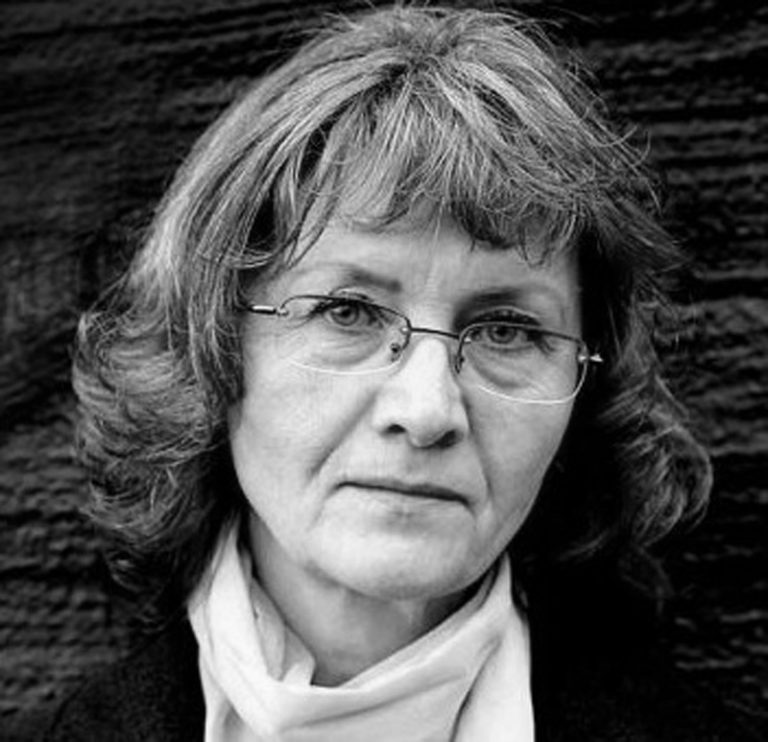
Poverty and privilege marked opposite sides of my family, but my grandparents all knew that America is only as great as the welcome given those who come to these shores seeking Life, Liberty and the pursuit of Happiness.
Many of the more than eighty French books I have translated into English deal with war, oppression, misogyny, racism, the plight of refugees and the gruesome hells of genocide. The second book I ever took on told the story of Molyda, a child who watched without a tear – even a single one would have betrayed her ‘complicity’ – as those she loved died in the killing fields of Cambodia. Rescued from a Thai refugee camp by a couple in Paris, she could not speak for a year, but her new parents, psychiatrists in exile from Communist Czechoslovakia, helped her to dance and sing her memories, which slowly became her French voice. I met Molyda Szymusiak and her adoptive parents in her new home, and during dinner there, her father asked me about my family background. When he heard my maternal grandfather’s last name, Niesz, he told me it was of Ukrainian origin; I replied politely that Grampa’s family had come from Alsace-Lorraine. ‘Of course,’ said my host. ‘That was the conduit into Western Europe.’ Grampa and his parents were dead by then, but when I asked my grandmother about this, she sat down so hard she scared me. So that was it!
Grannie and Grampa had never gone to college, and began married life with almost nothing, but through luck, thrift and hard work, they prospered enough to become great travelers, indefatigable, in love with every country they could afford to visit and all the people they could manage to meet. I have photos of them on camels and in kimonos, wearing garlands of marigolds and petting reindeer – but Grannie had never understood her husband’s reluctance to go on their last big trip, to Russia, where their adventures became so stressful for him that she feared he would have a heart attack. When several tour guides laughingly told him that he looked like Khrushchev (which he did, uncannily), he was – this is the right word – frightened. As the Aeroflot plane took off for the USA, my gentle Grampa began sobbing uncontrollably, but told his wife only that he was glad to be going home.
Grannie and I realized that in Russia poor Grampa must have been in terror of being ‘repatriated’ by the Soviet regime because of his family’s hidden Ukrainian background, a secret written all over his face. I looked up Khrushchev: he was born in a village near what is now the border between Russia and Ukraine. Years later, when I sat with Grampa as he lay dying, he fretted endlessly about his coming ‘trip’ – the last he would ever take – and obsessed about his American passport, which I gave him to hold so he could fall asleep. One day, much later, I sent in a DNA swab to the National Geographic Genome Project, and when the map came back, without any national boundaries, there I was. There it was: a line swinging up out of Africa in a curving motion to the west, with a short jaunt up and down to the north, a little eastward, but the main line headed on through France and up to England. I got out my atlas to check: the north-eastern journey was to the Ukraine.
We all of us depend on the kindness of strangers. If you come to New York City, don’t go to Trump Tower; go see the Statue of Liberty to wish her luck. If you visit Washington, skip the White House and gaze at the real face of America, a real president: Lincoln in his memorial. And please say a prayer there for the better angels of our nature.
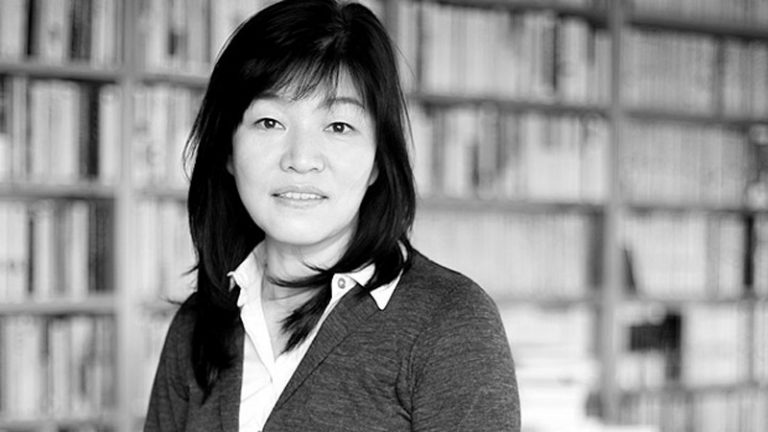
I’m a Korean writer. I live in Seoul, but I often visit New York. One of the reasons I love visiting this city is that it shows one great harmony, like an orchestra, whose musicians are the immigrants. The streets of New York are filled with individuals that are all different from one another, and who always exude freedom and vitality – I get inspiration from this as a writer. I love the freedom that New York freely gives out.
I believe that it is the different energies of these immigrants that have built America into what it is today. The country became great and strong thanks to the power of immigrants. How can it now try to act against people’s freedom of movement? President Trump – please be confident and generous!
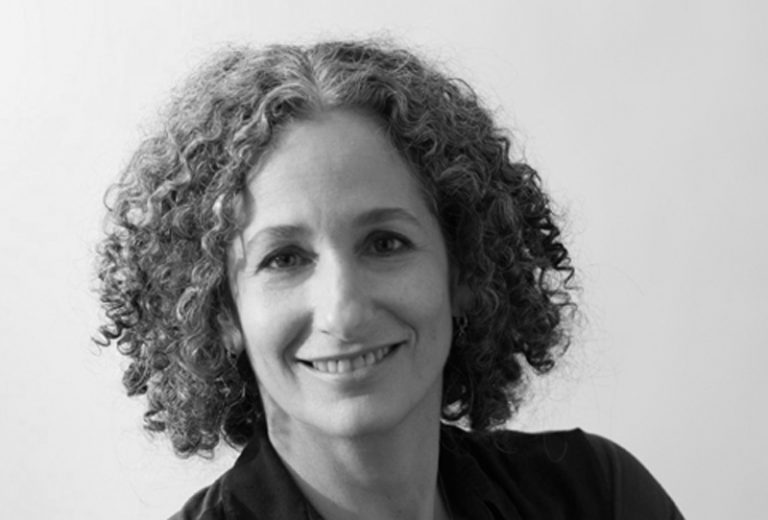
I will not say your name. I will not call you Mr President. I will leave your name blank. This is what the vetted refugees, legal immigrants and holders of valid visas to the US must have felt like when they arrived in this country, went through airport security, handed in their passports to the immigration officers, and were then detained simply because they were born in the wrong place at the wrong time. Equally erased were those who were stranded in foreign airports, waiting to board planes to the US.
They were mothers, daughters, sons, fathers, professionals, students. Among them were translators, men and women who had given service to the US, old people, children. Some were refugees who had suffered great hardship. Others held green cards, work visas, tourist visas and student visas. But when they entered immigration limbo, their identities, their selves, the fabric of their day-to-day lives, disappeared. They were neither here nor there. They were nowhere, and they were no one. You didn’t care that your executive order would upend their lives. You never saw their faces. You never thought of their hopes, their dreams, their fears. Their jobs. The families who were waiting to meet them when they got off the plane. They were nothing to you. So you are nothing to me. You remain blank, a void where a real human being should be, someone with compassion and vision and understanding.
I can relate to the pain of those you did not consider because I too am an immigrant. But unlike many of those who were turned away or detained, I did not come as a refugee. I came from apartheid South Africa, from a country that unfairly privileged me because of the color of my skin. I was lucky enough to be born to parents who taught me, as early as I could remember, that the system of separating peoples by race was unjust. Their own parents had fled anti-Semitism and lack of opportunity in Lithuania for the promise of a new country on a new continent. So the story of leaving home is in my DNA.
Although I have lived in America for thirty-six years, and am married to an American and have two American college-age children, I will never forget the complicated and lengthy road to citizenship. I still remember going for my green card interview, and the immigration officer saying ‘Welcome home’ to me after stamping my documents. Just thinking about it now makes me well up with tears. I came from a place where discrimination was enshrined in the law, and saw first-hand the effects of state violence on the populace. I remember well the nationwide state of emergency in South Africa in the late seventies and eighties, the bloodshed, the tear gas, the tanks rolling into the townships.
America, with its rich diversity of peoples, its freedoms, its generosity, this country founded by and built by immigrants from every country on earth, was the home of my choice, a beacon of hope, a place where I could leave the frightful legacy of apartheid behind, where I could reinvent myself. It became a place of personal transformation and growth, where I learned to be who I am today.
I live in New York City and every day I am reminded on the streets, in the subways, and in the shops of the great melting pot that is America. In the one-block radius around my home are stores owned by Yemenis, Indians, Koreans, Chinese, Hispanics. Our lives and our destinies are intertwined. We are neighbors.
It will be my mission to try to compel my local representatives to fight your unjust ban at every turn, to make sure that you don’t destroy the hope of a better life for those whose lives are now on hold. You care nothing for their plight despite the fact that you too are descended from immigrants, that you have married immigrants and that your son-in-law’s grandmother was once a refugee.
I will do everything in my power as a citizen so that those travellers, when they again face an immigration officer at an airport or an embassy, might hear the words of welcome I once heard, that they too may have the chances I had to live in a society which honors the very foundation upon which it was based, that ‘All men are created equal, that they are endowed by their Creator with certain unalienable rights, that among these are Life, Liberty and the Pursuit of Happiness.’







